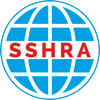
![]()
![]() Submitted By:
Submitted By:
Satoshi Ishida
Department of Public Policy, Faculty of Regional Design and Development, University of Nagasaki, Sasebo, Nagasaki, Japan
Article
The tourism industry has been recognized as a potential development mechanism in local communities facing various changes and challenges. In recent years, content tourism, which is the utilization of lands associated with works appearing in subcultures including anime, manga, video games etc. and other content works for which Japan has attracted international attention, as a tourism resource. Content tourism has attracted the attention of many local governments and businesses in recent years as a new form of tourism that attracts large numbers of tourists (content fans) and revitalizes local economies in Japan’s regional cities, where the population is rapidly declining. However, previous studies have not revealed much about the practice of contents tourism, especially those that examine it from the perspective of collaborative governance. This article exams a case study of a cross-sectoral organizational network designated to promote contents tourism in Sasebo, Nagasaki. Sasebo City used to be a military port since the late 19th century, when the Meiji Government established a naval base in the city, and is celebrating more than 130 years since the port opened. In the past, there has been little noticeable movement to utilize the military port as a historical legacy to remind people of the war, but in April 2016, the city was recognized as one of the four former military port cities as a “Japan Heritage” , and there is a growing movement to utilize the military port legacy as a tourism resource. Among them, events linked to content works featuring former naval forces and military ports have gained popularity, attracting many tourists and repeat visitors. This article briefly introduces the topics of collaborative governance and contents tourism, and then the network for cross-sectoral collaboration and the research method. As a result, findings are discussed in terms of key elements of collaborative governance, aspects of the network formation and development process and features of the Sasebo’s context that may influence the network development. In conclusion, this paper focuses on the role of key stakeholders in formatting a network in the context of content tourism. What became clear from the qualitative research based on interviews with related organizations was the need to establish constant communication mechanism among stakeholders and to building trust with content rights holders. The struggle to formulate a collaborative governance approach for effective content tourism may bring positive socio-economic benefits to the city and similar declining cities in Japan. As this approach is conceptually tentative and in its developmental stage in theory and practice, it needs to be complemented by additional research findings from empirical case studies conducted with broader and more diverse stakeholder involvement.
_________________________________________________________________
Disclaimer: Any opinions and views expressed in this submission are the opinions and views of the person who has submitted the article, and are not the views of or endorsed by the Social Science and Humanities Research Association (SSHRA). The accuracy of the content should not be relied upon and should be independently verified with primary sources of information. The person submitting the article does not necessarily be the author of the article. The Social Science and Humanities Research Association (SSHRA) shall not be liable for any losses, actions, claims, proceedings, demands, costs, expenses, damages, and other liabilities whatsoever or howsoever caused arising directly or indirectly in connection with, about, or arising out of the use of the content. For any issues or any reporting, write an email to convener@eurasiaresearch.info
___________________________________________________________________





